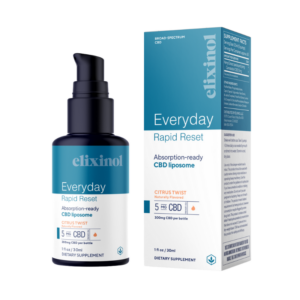
$44.99
Elixinol
Elixinol CBD Oil Liposomes 30 mL
| Total CBD: | 300 mg |
| Potency: | 10 mg/mL |
| Cost per mg CBD: | $0.15 |
| Extract Type: | Broad-Spectrum |
| Flavor: | Citrus Twist |
| THC Content: | 0% |
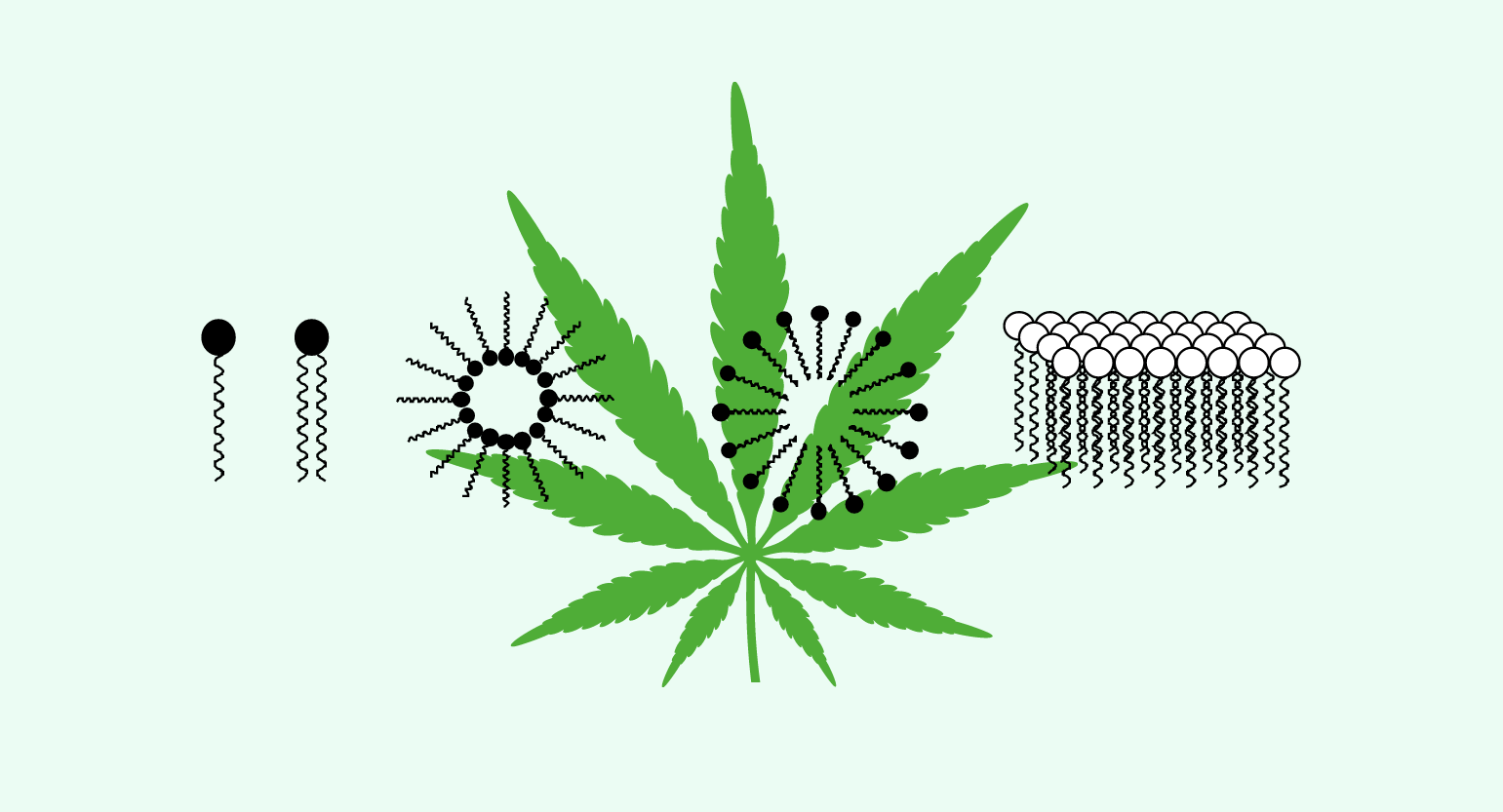
The whole point of liposomal CBD is to increase absorption & make CBD oil stronger. But does it work? What are the best liposomal CBD oils?
Liposomal cannabidiol is one of the most cutting-edge advancements when it comes to CBD products.
The CBD is placed in a microscopic “packaging,” called a liposome, that increases the bioavailability.
This means more of the CBD is available for your body to use.
Learn everything you need to know about liposomal CBD, including whether it’s right for you, in this article.
Liposomal cannabidiol, or liposomal CBD, refers to any CBD placed in liposomes before being packaged and sold.
The liposomes work to keep the CBD compound intact as it moves through your body, increasing bioavailability.
Bioavailability refers to the amount of a substance that’s able to go from the digestive tract to the blood, as well as the blood to the individual tissues.
Having a higher bioavailability makes a compound stronger and faster-acting.
Liposomes are microscopic “packaging,” that surrounds each individual molecule of a compound to protect it from normal bodily processes like digestion.
Liposomes are “sphere-shaped vesicles,” usually made of natural phospholipids — the molecules that make up our cell membranes — so they’re totally safe to ingest [1].
Liposomes are used for various medicines and vitamins to protect the compound from the point of ingestion all the way to absorption into the bloodstream. This doesn’t necessarily mean you’re getting 100% of the compound you’ve taken — your body almost always expels at least some of the compounds you ingest.
Note that not all medications can be liposomal. It works best with fat-soluble substances or minerals. CBD is fat-soluble and works great in liposomal form.
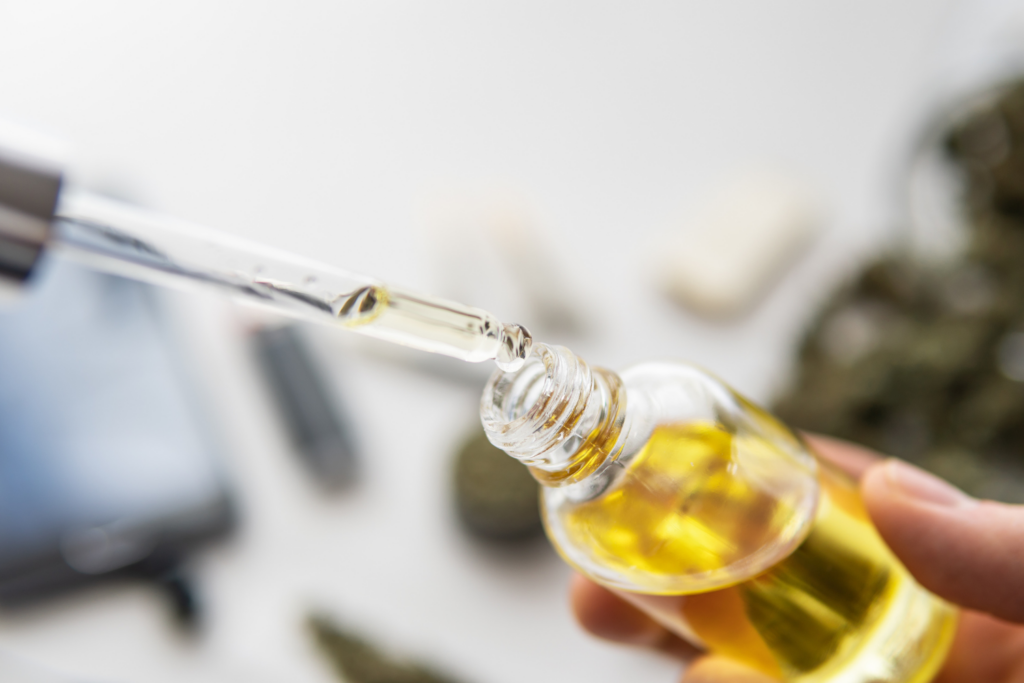
The FDA defines bioavailability as an estimate of the fraction of the dose that is absorbed into the systemic circulation, a.k.a. the bloodstream.
Bioavailability is essentially the amount of a drug or other substance the body can actually “use.” It’s usually represented as a percentage.
The bioavailability of any substance depends on how it’s introduced to the body. Introducing a drug intravenously puts bioavailability at 100% because all of it enters the bloodstream.
When you take a substance orally or any other way, bioavailability can decrease due to the metabolic and digestive processes that are designed to break down the compounds we ingest.
Liposomes increase the bioavailability of CBD because they protect each CBD molecule from degrading during the digestion process. With the liposomal “packaging” around the compound, your body can take up more of the CBD inside rather than expelling some of it through urine or feces.
It might shock you to learn that the bioavailability of most non-liposomal, oral CBD products is very low. CBD isn’t soluble in water, which can make it harder for your body to absorb the compound [2].
So, when you take a normal CBD gummy or tincture dose, a lot of the milligrams of CBD are filtered out during the metabolic process. This leaves the bioavailability of oral CBD at about 9% [2]. For inhaled CBD products like vapes or flowers, bioavailability is greater — around 31% after smoking CBD [3].
Regardless of whether you choose to switch to liposomal CBD, it’s good to understand the approximate bioavailability of the products you like so you can have a better idea of how many milligrams of CBD your body is actually able to use.
However, keep in mind that bioavailability refers to the amount of the drug your body has the availability to take up — not necessarily the amount that actually moves into your bloodstream.
For instance, bioavailability can theoretically exceed 100%. That doesn’t mean your body would take up more than 100% of the drug that’s there, but rather that your body is available to move more than 100% of the drug into the bloodstream.
Liposomal CBD increases the bioavailability of CBD by allowing the compound to stay in your system beyond the metabolic process, giving it time to absorb into your bloodstream, as we’ve covered.
The question is, how much of a difference do those liposomes really make?
A recent study compared liposomal and non-liposomal CBD, both taken orally [4]. Forty percent of the patients who took the non-liposomal CBD had CBD in their blood one hour after ingestion. One hundred percent of the patients who took the liposomal CBD had CBD in their blood after the same period.
While there are limited studies on the increased bioavailability of liposomal CBD, the science is already there. Liposomes have been used since the 1960s for increased efficacy of tons of drugs and vitamins, all for the same reason that it’s being used for CBD now.
Compounds that are not fat or water-soluble simply need a little help getting into the bloodstream, and liposomes accomplish that.
Despite the obvious benefits of liposomal CBD in terms of increased bioavailability, it might not be right for everyone. Because the technology is relatively cutting-edge within the world of cannabis, liposomal CBD products can be pricey and hard to find.
It’s also true that liposomal CBD isn’t really necessary if you prefer to take very low doses.
If a 50 mg dose of CBD is equivalent to around 25 mg of liposomal CBD, but the liposomal version is three times the price, it makes more sense to just use the standard CBD oil and take twice as much.
However, if you take very high doses of CBD, the price of liposomal CBD might start to feel worth it so you can get more out of the CBD you’re purchasing.
In terms of risk or difference in experience, liposomes will not impact your CBD in any way other than bioavailability. Liposomes are completely natural and non-toxic, and they’re designed to be absorbed into your blood. The only difference you might notice is higher efficacy; no additional side effects will take place [5].
Suggested Reading: CBD Dosage Calculator – How Much CBD Should I Take?

| Total CBD: | 300 mg |
| Potency: | 10 mg/mL |
| Cost per mg CBD: | $0.15 |
| Extract Type: | Broad-Spectrum |
| Flavor: | Citrus Twist |
| THC Content: | 0% |
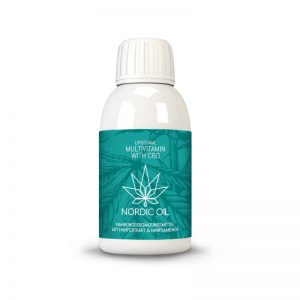
| Total CBD: | 90 mg |
| CBD Potency: | 0.6 mg/mL |
| Cost per mg CBD: | €0.65 |
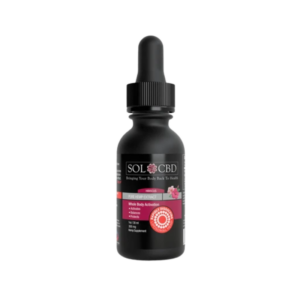
| Total CBD: | 300 mg |
| CBD Potency: | 10 mg/mL |
| Cost per mg CBD: | $0.26 |
| Extract type: | Full-spectrum |
| THC Content : | 0.03% |
Choosing to switch to liposomal CBD is extremely low-risk, but it may not be necessary or cost-effective for users who take low doses.
Liposomal CBD is more readily available, and therefore more potent with less volume of oil than standard CBD oils.
The catch is that liposomal CBD can be expensive. It may not always be the most cost-effective means of using CBD. In some cases, it’s better to just take more volume of oil to hit the same equivalent dose than spend extra cash to take slightly less per dose.